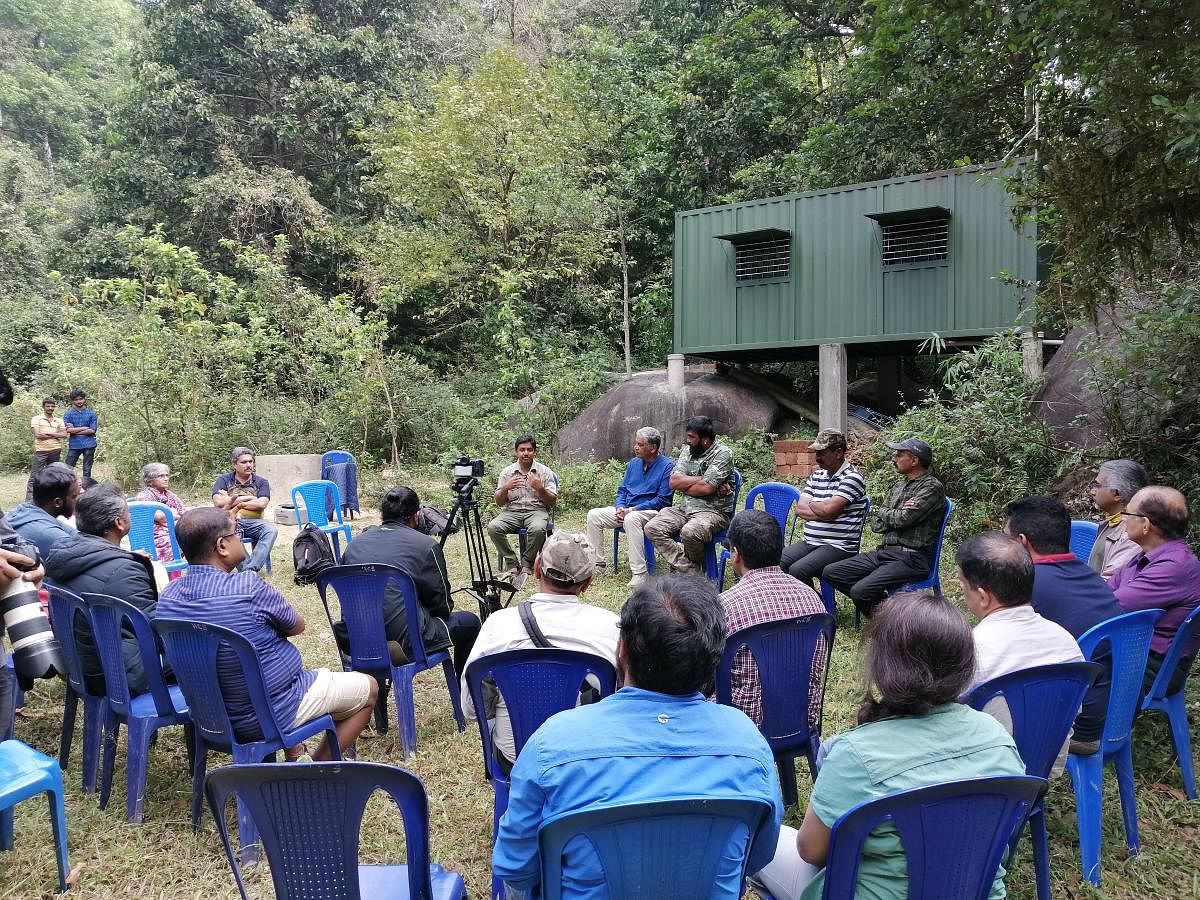Farmland to forest: Bisle’s incredible ecological revival

Surrounded by towering trees and lush greenery, a ‘Field station’ at ‘Ashokavana’ in Bisle forest range in Sakleshpur taluk invites researchers and ecologists to observe and document the rich biodiversity of the region. What makes this field station special is that it is the result of the effort of two families to revive ecosystems and return the patches of land on the fringes of forests to nature.
For nature enthusiasts G N Ashoka Vardhana, Devaki and their family this is the second such attempt. Earlier they had purchased, rejuvenated and returned one acre of rocky land in Konaje, near Mangaluru, to nature.
The current effort was triggered by the possibility of fragmentation of 15 acres of agricultural land being sold for commercial purposes. “I came to know about this land through Niren Jain of Kudremukh Wildlife Foundation 15 years ago. He was trying to prevent the sale of 15 acres of agricultural land (patta land). The sale of land to people with commercial interests, like tourism, would have lead to the fragmentation of the 23 km stretch, which is within Pushpagiri Wildlife Sanctuary and Bisle Reserve Forest,” recollects Ashoka Vardhana.
It didn’t take long for Ashoka Vardhana, who ran a book store in Mangaluru then, to make up his mind. He sought the support of his friend Dr Krishna Mohan, a surgeon in Moodbidri.
Both of them bought the land in 2006 and named it Ashokavana. Ashoka Vardhana told DH that the place has remained untouched since 2006. “We have neither planted a seed nor taken the forest produce like wild cardamom home,” he informs.
From time to time, Ashoka Vardhana used to visit the place with like-minded friends, used to pitch tents and tried to document the flora and fauna in the area. “Our efforts were rewarded when we sighted Nilgiri marten (mara nayi in Kannada language) after a long gap,” he says.
Along with the revival efforts, the duo ensured that the place is open to researchers and wildlife enthusiasts. From 2012 onwards, K V Gururaj, an assistant professor in Srishti Manipal Institute of Art, Design and Technology in Bengaluru, has been organising annual ‘Kappe Shibiras’ (Frog camps) at Ashokavana during monsoon. This is an effort to document frogs in the region.
“So far, the team has found 38 frog species in this area,” Gururaj informs. As frogs are habitat indicators, the research in the long run will help us in realising the impact of degradation of forests or climate change.
During the camps, Ashoka Vardhana and Krishna Mohan felt the need for a container home to facilitate ‘research without any disturbances’. It didn’t take much time for them to put their plan into action. The custom-built container home, which can comfortably accommodate four persons, was set up on two massive boulders and no trees were felled during the process, they say. They call the home Kappe Goodu.
Recently, Ashoka Vardhana and Krishna Mohan dedicated ‘Kappe Goodu’ in the presence of over two dozen well-known wildlife enthusiasts and researchers. They mentioned that the facility would be available free of cost to researchers with a passion for field research on endangered species.
This has indeed given wings to the dreams of many researchers who are studying wildlife and ecosystems. Some have shown interest in conducting research on bees and ants in the area. Butterfly researcher Sammilan Shetty says the region has a rich diversity of butterflies and plans to document them.
Sammilan feels people like Ashoka Vardhana and Dr Krishna Mohan are rare to find. “Ashokavana is a big gift to conservation and research,” he says.
Deccan Herald is on WhatsApp Channels| Join now for Breaking News & Editor's Picks